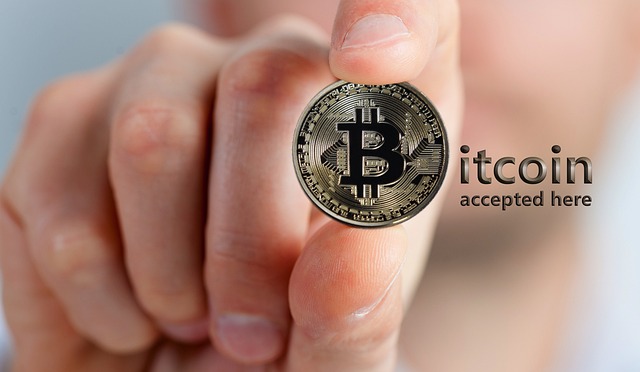Decentralized Finance and Blockchain: A Synergistic Tech Marriage
Decentralized Finance and Blockchain: A Synergistic Tech Marriage

What is Decentralized Finance?
Decentralized Finance, often referred to as DeFi, is an emerging trend within the cryptocurrency and blockchain industry that aims to revolutionize the traditional financial system. In simple terms, it is a financial system that operates without the need for intermediaries like banks or financial institutions. Instead, it leverages the power of blockchain technology and smart contracts to create a transparent, secure, and accessible network for financial transactions and services.
One of the core principles of decentralized finance is its emphasis on inclusivity. Unlike traditional finance, which often excludes individuals without access to banking services or requires extensive documentation for participation, DeFi enables anyone with an internet connection to participate in financial activities. Through decentralized lending platforms, stablecoin projects, and decentralized exchanges, individuals from all over the world can access loans, earn interest on their assets, and trade digital assets seamlessly, without the need for intermediaries or intermediation fees. By removing barriers and increasing accessibility, decentralized finance has the potential to democratize the financial system and empower individuals to have more control over their finances.
The Evolution of Blockchain Technology
Over the past decade, blockchain technology has undergone a remarkable evolution, transforming from a little-known concept to a disruptive force in various industries. It all began with the introduction of Bitcoin in 2009, the world’s first decentralized digital currency. Bitcoin’s underlying technology, blockchain, provided a revolutionary way to record and verify transactions without the need for intermediaries like banks or governments. This breakthrough gave birth to a new era of digital trust and transparency, paving the way for the widespread adoption of blockchain technology.
As blockchain’s potential started to become more apparent, developers began exploring its capabilities beyond cryptocurrencies. They realized that the distributed ledger technology at the core of blockchain could be used for much more than just financial transactions. The introduction of smart contracts further expanded its potential by enabling self-executing contracts with predefined conditions.

The Benefits of Decentralized Finance
Decentralized finance (DeFi) offers several key benefits that are revolutionizing the traditional financial landscape. One notable advantage is increased accessibility. Unlike traditional financial systems that are heavily regulated and often exclude certain individuals or regions, DeFi allows anyone with an internet connection to participate. This means that individuals in underserved communities can now access financial services without the need for a traditional bank account. Additionally, DeFi enables cross-border transactions with reduced fees and intermediaries, making it an attractive option for those seeking fast and cost-effective money transfers.
Another significant benefit of decentralized finance is the potential for increased transparency. Traditional financial transactions often lack transparency, with opaque processes and hidden fees. With DeFi, every transaction is recorded on a blockchain, a public and immutable ledger. This transparency creates a level playing field and reduces the risk of fraud, as all participants can verify and track transactions in real-time. Moreover, the open nature of blockchain technology allows for increased trust between parties, eliminating the need for intermediaries and unnecessary third-party fees.
How Blockchain is Revolutionizing Traditional Finance
Blockchain technology has been making waves in the financial industry, revolutionizing how traditional finance operates.


Additionally, blockchain technology is enabling faster and more efficient cross-border payments. Traditional methods of transferring money internationally can be time-consuming, with several intermediaries involved in the process. Blockchain eliminates the need for these intermediaries, allowing for near-instantaneous settlement of transactions. This not only reduces transaction fees but also opens up new opportunities for businesses and individuals to participate in the global economy. By eliminating barriers and simplifying the process, blockchain is facilitating faster and more cost-effective cross-border transactions, making it easier for businesses to operate on a global scale.
As blockchain technology continues to evolve and gain mainstream adoption, its impact on traditional finance is becoming increasingly evident. From providing a more secure and transparent system for transactions to enabling faster and more efficient cross-border payments, blockchain is transforming the way traditional finance operates. With the potential for reduced costs, increased speed, and enhanced security, blockchain is paving the way for a more inclusive and efficient financial future.
The Role of Smart Contracts in Decentralized Finance
Smart contracts play a crucial role in decentralized finance (DeFi) by bringing automation and efficiency to traditional financial transactions. These self-executing contracts are built on blockchain technology, enabling parties to engage in financial activities without the need for intermediaries. Smart contracts are based on predefined rules and conditions, ensuring that transactions are executed only when specific criteria are met. By eliminating the need for intermediaries like banks or lawyers, smart contracts enable trustless and transparent transactions, significantly reducing costs and transaction times.
With smart contracts, DeFi applications can automate a wide range of financial activities, including lending, borrowing, trading, and asset management. For example, in decentralized lending platforms, smart contracts facilitate peer-to-peer lending by automatically executing loan agreements based on predefined interest rates and repayment terms. Similarly, in decentralized exchanges, smart contracts enable the instant and automated trading of digital assets, ensuring that transactions occur only when the pre-agreed conditions are met by the involved parties. The use of smart contracts in DeFi applications not only streamlines financial processes but also mitigates the risks associated with human error and fraud.
Exploring the Different Types of Decentralized Finance Applications
Decentralized finance (DeFi) applications have gained significant attention in recent years, offering innovative solutions that disrupt traditional financial systems. One of the most prominent types of DeFi applications is decentralized exchanges (DEXs). Unlike centralized exchanges, DEXs operate without intermediaries, allowing users to trade cryptocurrencies directly from their wallets. This eliminates the need for extensive identity verification, enhances privacy, and reduces the risk of funds being stolen or hacked.
Another type of DeFi application that has gained traction is decentralized lending platforms. These platforms enable individuals to borrow and lend cryptocurrencies without the involvement of traditional financial institutions. By utilizing smart contracts, borrowers can put up collateral and receive loans instantly, bypassing lengthy approval processes and excessive paperwork. Additionally, lenders can earn interest on their digital assets by providing liquidity, creating a mutually beneficial arrangement for both parties. These lending platforms open up financial opportunities for individuals around the world, particularly those who are underserved by traditional banking systems.
• Decentralized exchanges (DEXs) operate without intermediaries, allowing direct trading of cryptocurrencies from wallets.
• DEXs eliminate the need for extensive identity verification, enhancing privacy and reducing the risk of funds being stolen or hacked.
• Decentralized lending platforms enable borrowing and lending of cryptocurrencies without traditional financial institutions.
• Smart contracts allow borrowers to put up collateral and receive instant loans, bypassing lengthy approval processes.
• Lenders can earn interest on their digital assets by providing liquidity on these platforms.
• These lending platforms open up financial opportunities for individuals underserved by traditional banking systems.
The Challenges and Risks of Decentralized Finance
Decentralized finance (DeFi) has gained significant traction in recent years, with its promise of democratizing financial services and eliminating intermediaries. However, like any emerging technology, DeFi is not without its challenges and risks. One of the primary challenges is scalability. As more users and applications enter the DeFi ecosystem, the current blockchain infrastructure struggles to handle the increasing transaction volume. This leads to congestion, higher fees, and slower transaction times. Addressing scalability is crucial to ensure that DeFi can reach its full potential and attract mass adoption.
Another challenge that DeFi faces is the issue of regulatory compliance. As DeFi operates in a decentralized manner outside the traditional financial system, it can be difficult for regulators to monitor and enforce compliance standards. This lack of oversight opens the door to potential fraud, money laundering, and other illegal activities. Striking a balance between maintaining the decentralized nature of DeFi while adhering to regulatory frameworks is an ongoing challenge that the industry must navigate. Additionally, the evolving regulatory landscape poses uncertainties and risks for DeFi projects, as changing regulations can impact their operations and viability.
While DeFi presents numerous opportunities for innovation and financial inclusion, these challenges and risks should not be overlooked. Tackling scalability issues and finding a framework for regulatory compliance are essential for the long-term success and sustainability of the DeFi ecosystem. Only by addressing these challenges head-on can DeFi truly revolutionize the way we engage with and access financial services.
The Future of Decentralized Finance and Blockchain Technology
Decentralized finance (DeFi) and blockchain technology have made significant strides in recent years, and there is no denying that their future holds tremendous potential. As we continue to explore innovative ways to leverage these technologies, the possibilities seem endless. One of the most exciting prospects for the future of DeFi and blockchain technology lies in their ability to provide financial services to the unbanked and underserved populations around the globe. By eliminating intermediaries and reducing costs, DeFi has the potential to empower individuals who have traditionally been excluded from the traditional financial system.
Another aspect that holds promise for the future of DeFi and blockchain technology is the potential integration with other emerging technologies. As artificial intelligence, Internet of Things, and quantum computing continue to evolve, we can envision a future where these technologies work in tandem with DeFi and blockchain to create even more advanced and efficient financial systems. This convergence could lead to smarter contracts, more secure transactions, and improved identification verification, further enhancing the potential of decentralized finance in a range of sectors, including supply chain management, healthcare, and real estate. The future of DeFi and blockchain technology is indeed exciting, and it is crucial for us to embrace this potential and explore how it can transform our economies and societies.
Real-World Examples of Decentralized Finance in Action
Decentralized finance, also known as DeFi, has gained significant traction in recent years, revolutionizing the way we think about traditional finance. One real-world example of DeFi in action is the emergence of decentralized exchanges. These platforms allow individuals to trade cryptocurrencies directly with one another, without the need for intermediaries such as banks or centralized exchanges. By utilizing blockchain technology and smart contracts, decentralized exchanges offer users greater control over their assets and increased privacy.
Another example of DeFi making waves in the real world is the rise of decentralized lending and borrowing platforms. These platforms enable individuals to lend their cryptocurrency holdings to others in exchange for interest, or borrow digital assets by using their own holdings as collateral. The absence of intermediaries and the use of smart contracts ensure that transactions are transparent, secure, and efficient. This innovative approach to lending and borrowing has the potential to greatly expand financial access and empower individuals around the world.
How to Get Started with Decentralized Finance
Decentralized finance, also known as DeFi, has gained significant traction in recent years as an alternative to traditional financial systems. If you’re interested in getting started with DeFi, there are a few key steps to take.
First and foremost, you’ll need to familiarize yourself with the basic concepts and terminology surrounding DeFi. This includes understanding what blockchain technology is and how it works, as well as grasping the role of smart contracts in facilitating decentralized financial transactions. Don’t worry if all of this sounds complex at first – there are plenty of online resources and guides available that can help break down these concepts into more digestible chunks.
Once you have a basic understanding of DeFi, the next step is to choose a platform to engage with. There are various decentralized finance applications available, each with its own unique features and benefits. Some popular options include decentralized exchanges (DEXs) for trading cryptocurrencies, lending and borrowing protocols for earning interest or taking out loans, and yield farming platforms for maximizing returns on your digital assets. Take the time to research and compare different platforms, considering factors such as security, user experience, and the range of available services.
Remember, DeFi is a relatively new and fast-growing field, so it’s important to stay updated on the latest developments and trends. Engaging with online communities, attending conferences, and following reputable news sources will keep you informed and allow you to make more informed decisions when it comes to participating in decentralized finance. As with any investment or financial endeavor, it’s important to exercise caution and do your due diligence before diving in. So, take your time, learn as much as you can, and start your DeFi journey with confidence.
What is decentralized finance?
Decentralized finance, also known as DeFi, refers to the use of blockchain technology and smart contracts to create financial applications that are free from central authorities like banks or government institutions.
How has blockchain technology evolved?
Blockchain technology has come a long way since its inception with the creation of Bitcoin. Now, it offers more advanced features like smart contracts, which allow for decentralized finance applications to be built on top of it.
What are the benefits of decentralized finance?
Decentralized finance offers several benefits, including transparency, accessibility, and increased financial inclusivity. It also eliminates the need for intermediaries, reducing costs and improving efficiency.
How is blockchain revolutionizing traditional finance?
Blockchain is revolutionizing traditional finance by introducing greater security, efficiency, and transparency. It allows for faster transactions, eliminates the need for intermediaries, and improves the overall trust in the financial system.
What is the role of smart contracts in decentralized finance?
Smart contracts are self-executing contracts with the terms of the agreement directly written into the code. In decentralized finance, smart contracts automate transactions, ensure compliance, and enable the creation of decentralized applications.
What are the different types of decentralized finance applications?
There are various types of decentralized finance applications, including decentralized exchanges, lending platforms, stablecoins, and prediction markets. Each serves a different purpose within the decentralized finance ecosystem.
What challenges and risks are associated with decentralized finance?
Decentralized finance faces challenges such as scalability, interoperability, and regulation. Additionally, there are risks of smart contract vulnerabilities, market volatility, and potential security breaches.
What does the future hold for decentralized finance and blockchain technology?
The future of decentralized finance and blockchain technology is promising. It is expected to continue to grow and disrupt traditional finance, with more innovative applications being developed and greater adoption by individuals and institutions.
Can you provide real-world examples of decentralized finance in action?
Sure! Some real-world examples of decentralized finance include projects like Compound, MakerDAO, and Uniswap, which offer lending, stablecoins, and decentralized exchanges, respectively.
How can I get started with decentralized finance?
To get started with decentralized finance, you can begin by researching and understanding the different decentralized finance applications available. You can then choose a platform or project that aligns with your goals and start by creating an account or wallet to participate in the decentralized finance ecosystem.
Todays Featured Product:
Buy, exchange and grow your crypto securely with a Ledger hardware wallet, combined with the Ledger Live app. It’s never been easier to keep your crypto safe and accessible. Buy direct from Ledger.com and get todays Special Offers Here.




